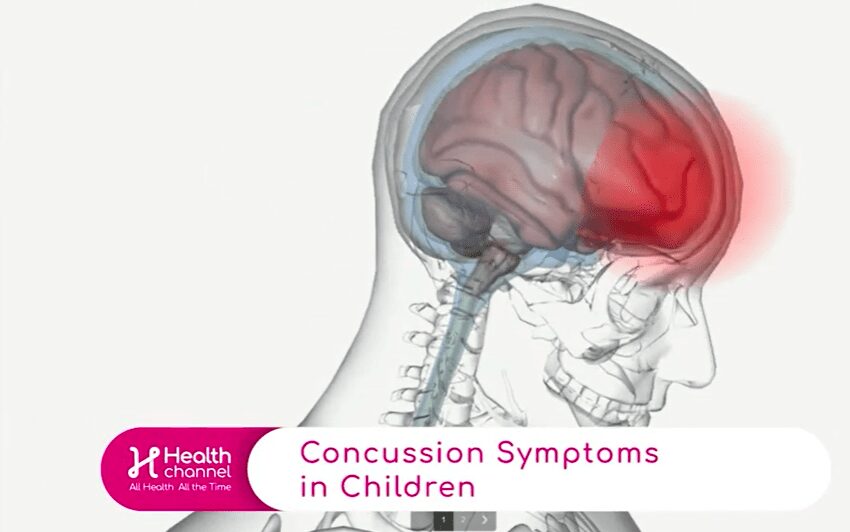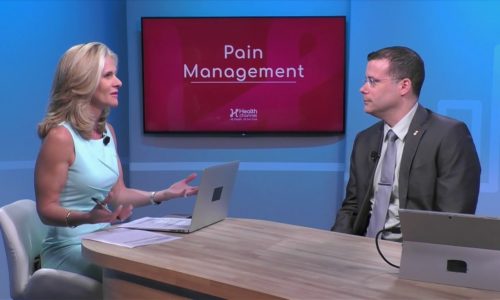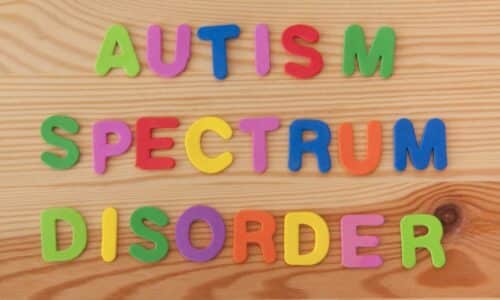Concussions in Children: Symptoms |

In an interview with the Health Channel, Dr. Fernando Mendoza, Medical Director of the Emergency Department at Baptist Children’s Hospital, discusses the most common signs of a concussion in children. He explains the best ways to spot a potential concussion in your child.
Dizziness is one of the most common presenting symptoms for concussions. Dizziness is usually accompanied by a headache as well. A lot of times the child will appear alright. Dr. Mendoza explains that he encounters a lot of parents who say, “‘Well I looked at them and their eyes looked fine, I can get them to focus on me.’” Dr. Mendoza explains that is not an accurate way of checking your child for a head injury, “You know, that’s almost always going to be the case, because unless you have a really severe head injury, you’re not going to have something wrong with the vision.” Dizziness and headache are the two main symptoms to look for. They are not always experienced immediately after the injury though; you may have to wait a couple of hours for the symptoms to set in. Nausea is also something to watch for.
Being unable to remember the event or other memory problems is a little bit more of a serious symptom. Lack of recall is characterized by the child being unable to describe what was happening when they got injured or what happened after they got injured. Dr. Mendoza explains that this memory loss could maybe be an indication of a traumatic brain injury of some sort.
The interviewer says, “One of my best friend’s little ones fell off the top of the bunk bed and one of the things that happened to her was she couldn’t see for a minute.” The interviewer then asks if vision loss or blurriness could be symptoms for a concussion. Dr. Mendoza replies saying that there can certainly be some immediate visual problems. “If you have immediate vision loss or headache those are the kinds of things you really want to watch out for.” Dr. Mendoza warns.
Another symptom is fatigue or being exceptionally tired. Dr. Mendoza explains that parents should listen to their instincts. If you know your child is acting differently, especially after a fall or injury, it may be time to take them to the emergency room. Sometimes parents might not know if their child has even had an injury recently, but if you notice they are getting headaches, nausea, or acting strangely, Dr. Mendoza advises parents to call the coach at school or on the sport’s team. If the coach did not notice any falls or injuries, then parents can contact the parents of their child’s friends to figure out if an injury occurred and if your child needs to be taken to the emergency room.
Watch the full segment of Dr. Fernando Mendoza describing the symptoms of a concussion, here: https://youtu.be/NMr-Skmlvuk








